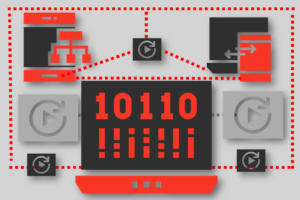Challenges and contexts in establishing adaptive learning in higher education: findings from a Delphi study
 Higher education institutions are increasingly interested in using adaptive learning as an innovative data-driven approach to teaching. The actual use of adaptive learning in courses remains, however, low. This is despite positive attitudes of institutional leaders towards its adoption and promising results of early studies on its effectiveness.
Higher education institutions are increasingly interested in using adaptive learning as an innovative data-driven approach to teaching. The actual use of adaptive learning in courses remains, however, low. This is despite positive attitudes of institutional leaders towards its adoption and promising results of early studies on its effectiveness.
This study examines the challenges that prevent higher education institutions from adopting adaptive learning concepts in teaching. We used a four-stage Delphi design to empirically identify, categorise, and prioritise the challenges of adaptive learning raised and rated by experts from two universities with different organisational and socioeconomic contexts, one from Switzerland and one from South Africa. Considering different contexts allowed us to include various perspectives on the research topic and thus broaden the view on the challenges of adaptive learning. Overall, three main dimensions related to technological, teaching and learning, and organisational challenges with eight corresponding categories were identified. Our findings revealed clear differences between the two universities regarding the emerged challenges and their rankings. These differences are linked to different socioeconomic backgrounds (South Africa and Switzerland) and organisational contexts (e.g., type of the university, teaching model, and implementation phase) of the universities. We conclude by proposing practical recommendations for institutional leaders and project implementers on the factors to be considered when implementing adaptive learning in higher education settings. These recommendations relate to the necessary infrastructure, institutional commitment, support and resources.
International Journal of Educational Technology in Higher Education







